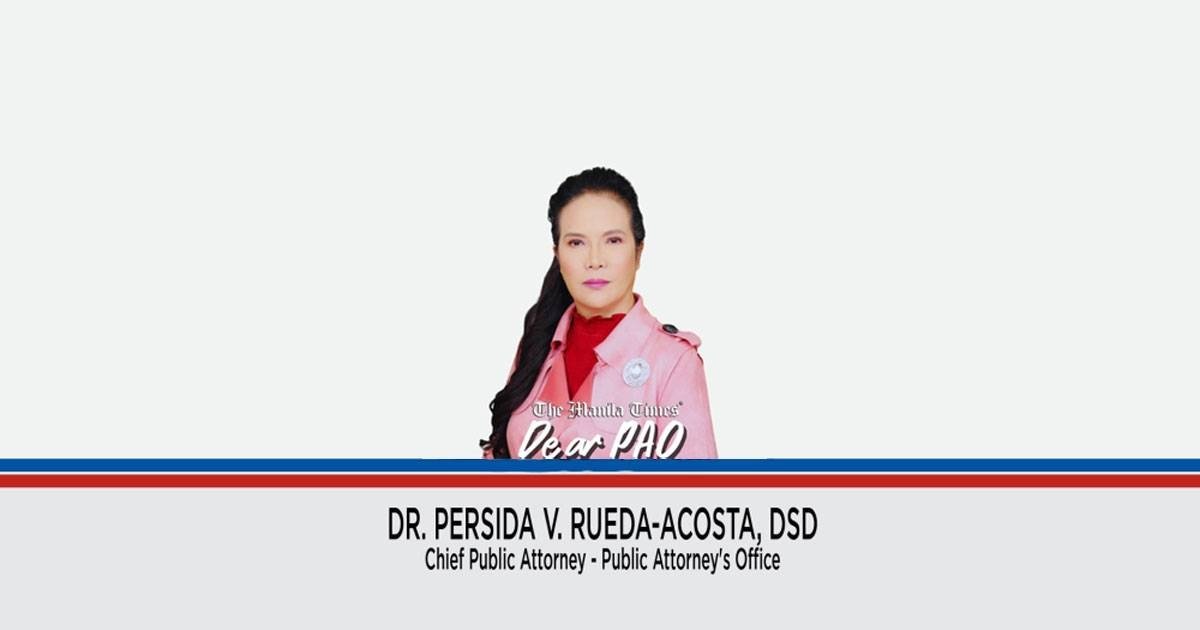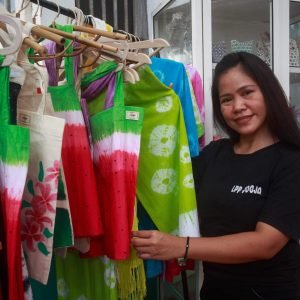
Dear PAO,
I have a sister who is a lesbian. She has been in a relationship with her partner for almost a year. My sister would beat her partner whenever she was drunk. Now, her partner is saying that she had enough and threatened to file a criminal case for the abuses she suffered. I relayed this information to my sister, but she just laughed and claimed that she cannot be held liable under the provisions of RA 9262 because the latter applies only to a man who abuses his partner or wife. Please enlighten us on the matter.
Regor
Dear Regor,
For your information, violence against women and their children has been defined under Section 3 (a) of Republic Act (RA) 9262 as follows:
“‘Violence against women and their children’ refers to any act or a series of acts committed by any person against a woman who is his wife, former wife, or against a woman with whom the person has or had a sexual or dating relationship, or with whom he has a common child, or against her child whether legitimate or illegitimate, within or without the family abode, which result in or is likely to result in physical, sexual, psychological harm or suffering, or economic abuse including threats of such acts, battery, assault, coercion, harassment or arbitrary deprivation of liberty.”
In the afore-stated provision of the law, abuses against a woman or child may be in the form of physical violence, sexual violence, psychological violence, and economic abuse.
The said abuses may be committed by any person, including your sister, who is a lesbian. The purpose of RA 9262 was clearly expounded in the pronouncement of the Supreme Court in the case of Agacid v. People of the Philippines, GR 242133, April 16, 2024, where the Supreme Court, speaking through Senior Associate Justice Marvic M.V.F. Leonen, adopted the lower court’s findings, viz.:
“The purpose of [Republic Act] 9262 is to protect and rescue women and their children from distinct and unique forms of violence known as [Violence Against Women and Their Children]. It is the distinctiveness and uniqueness of [Violence Against Women and Their Children] that sets it apart from other crimes. [Violence Against Women and Their Children] owes its distinctiveness to the domestic, private, hidden and invisible relationships from which these forms of violence emanate and gain significant uniqueness.
“A lesbian who maltreats her female partner physically, psychologically, economically cannot be any different from a male perpetrator of [Violence Against. Women and Their Children] or a mother-in-law who conspires with her daughter-in-law’s partner to commit [Violence Against Women and Their Children] against her. The same object of [Republic Act] 9262 ‘s protective mandate is given to the woman.
“The violence is as distinctive and unique as those that make [Violence Against Women and Their Children committed by men] deserving of this special attention. Indeed, to exclude lesbians from the protective mantle of [Republic Act] 9262 would create an artificially and arbitrarily privileged section of domestic violence that is exempt from scrutiny when other facets of domestic violence somehow similarly situated would otherwise be ordinarily prosecuted as such.
“To be sure, while intersectionality would better inform the distinctiveness and uniqueness of lesbian relationships, the same impunity, invisibility, and imbalanced power relationships that characterize [Violence Against Women and their Children committed by men] and [what Republic Act] 9262 aims to eradicate also infect and afflict lesbian relationships. As experts have put it, abusive tactics can be used in any relationship, regardless of gender.” (Underscoring supplied)
Applying this decision to your situation, a lesbian who abuses her partner is no different from a male perpetrator. Lesbian relationships are unique and distinctive; however, RA 9262 cannot be interpreted to exempt this kind of relationship from its coverage because the law aims to eradicate all kinds of abuse against women and their children, regardless of the sex or gender identity of the offender.
We hope that we were able to answer your queries. This advice is based solely on the facts you have narrated and our appreciation of the same. Our opinion may vary when other facts are changed or elaborated.
Editor’s note: Dear PAO is a daily column of the Public Attorney’s Office. Questions for Chief Acosta may be sent to [email protected]







